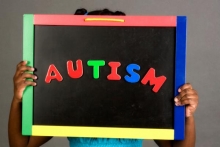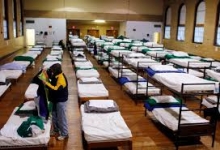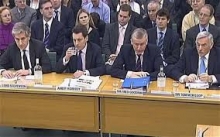Simon Collyer
February 29, 2016 Leap Year
A leap year has 366 days, as opposed to a common year, which has 365. Nearly every 4 years is a Leap Year, and we add a Leap Day, an extra – or intercalary – day on February 29.
The next Leap Year is 2016, so the next Leap Day falls on February 29, 2016.
Leap Years are needed to keep our modern day Gregorian Calendar in alignment with the Earth's revolutions around the sun. It takes the Earth approximately 365.242199 days – or 365 days, 5 hours, 48 minutes, and 46 seconds – to circle once around the Sun. This is called a tropical year.
However, the Gregorian calendar has only 365 days in a year, so if we didn't add a day on February 29 nearly every 4 years, we would lose almost six hours off our calendar every year. After only 100 years, our calendar would be off by approximately 24 days!
Who thought of it? Julius Caesar about 2000 years ago.
World Autism Day
Statement by Michael McCarthy TD - Labour Party TD for Cork South-West
Recognition of world autism awareness day vital - McCARTHY
World Autism Awareness Day is about generating understanding and awareness. Autism is not limited to a single region or a country; it is a worldwide challenge that requires global action.
I welcome news that this Government will acknowledge April 2nd as World Autism Awareness Day to highlight the need to help improve the quality of life of children and adults, who are affected by autism, so they can lead full and meaningful lives.
I also welcome confirmation today from my Labour colleague, Minister Kathleen Lynch, that Government Buildings and other OPW buildings will turn blue on April 2nd as part of our efforts to raise awareness on a national level.
Although the recognition of autistic conditions among the scientific, health and care communities is improving, public awareness remains low.
Children and persons with autistic conditions face major challenges associated with stigma and discrimination, as well as a lack of access to support. Many struggle with multiple barriers in their daily lives. Far too many suffer terrible discrimination, abuse and isolation.
Autism is a complex disorder. But in many cases the right treatment early on can bring improvements. That is why it is so important to raise awareness about the signs of autism and provide services as soon as possible.
People with autism have enormous potential. Most have remarkable visual, artistic or academic skills. Recognising the talents of persons on the autism spectrum, rather than focusing on their weaknesses, is essential. It is also critical to support parents and improve public awareness and education to better meet the needs of students with autism.
On 8 March 2013, politicians from every party stood up in the Dáil in support of my Autism Bill and it is vital now that we keep up the momentum to ensure that there is a cross-party movement to improve and enhance the lives of people with autism in Ireland.
What is Autism?
Autism is a developmental disability that remains with a person for his or her whole life. This condition affects the brain's functions. The first signs usually appear before a child is three years old. People with autism often:
- Find social interaction difficult.
- Have problems with verbal and non-verbal communication.
- Demonstrate restrictive and repetitive behavior.
- Have a limited set of interests and activities.
Autism affects girls and boys of all races and in all geographic regions and has a large impact on children, their families, communities and societies. The prevalence is currently rising in many countries around the world. Caring for and educating children and young people with this condition places challenges on health care, education and training programs.
What Do People Do?
Many events are organized on World Autism Awareness Day. These include:
- Panel discussions with autism experts, politicians and non-governmental organization (NGO) representatives.
- Informational events for parents of children with autism.
- Conferences and workshops for professionals working with people with autism.
- Artistic workshops for people with autism.
- Television and radio shows, as well as newspaper features, about people with autism and their lives.
- The launch of educational materials for parents and teachers.
- Exhibitions of art work by artists with autism.
- The display of posters and banners to increase public awareness of autism.
Special clinics are also organized for families dealing with autism to obtain consultations with pediatricians, educational psychologists and social workers.
History
On November 1, 2007, the United Nations (UN) called for one day each year to be designated as World Autism Day. On December 18, 2007, the UN General Assembly designated April 2 as World Autism Awareness Day. It was first observed in 2008.
Homeless over Christmas?
Where to Go for Emergency Help Over Christmas If You Are Homeless
If you are homeless over Christmas or are worried that you may become homeless there are several places you can go to get urgent advice and help:
Go to the Housing Department of your local council. They will assess your situation to decide whether they have a duty to give you housing or other practical help. They can also give you advice on where else to go for help and what your rights are. All councils should have a 24-hour telephone service for people in emergency situations. To find your local Housing Department search for Housing Department under Service type and select your Area on: Search all services.
Go to a local independent homeless advice service or a day center for homeless people. Day centers often also provide practical services for people sleeping rough such as meals, showers and laundry facilities as well as advice. To find services near you search for Homeless advice or Day center under Service type and select your Area on Search all services.
If you are a rough sleeper in need of accommodation in the cold winter weather, contact your nearest local area support team (outreach team) who make contact with people on the streets. If you are a member of the public and you want to help an individual on the streets in your area, please contact your local outreach team. You can also contact Street link (see logo at the bottom of this page) if you are in England.

Check out this website: http://www.homelessuk.org
Share of Wealth Owned By The Recently Retired Has Now Overtaken The Under 45s
It is lucky they did not die before they got old - Pete Townsend and Roger Daltrey that is. The remaining members of The Who can take cheer from reading this news.
The share of wealth enjoyed by the recently retired has overtaken that held by under 45s since the financial crisis, David Willetts will say at a lecture at Keele University later today (Thursday).
Willetts will draw on new analysis by the Resolution Foundation which shows that the share of total wealth held households headed by someone aged under 45 fell from 20 per cent in the years approaching the recession to 16 per cent in 2010-12.
As a result, households headed by someone aged 65-74 now hold more wealth, despite there being more than twice as many households headed by someone aged 16-44. Recent retirees’ account for almost a fifth (19 per cent) of the UK’s total household wealth, despite making up just 14 per cent of all households.
The stark generational wealth divide has grown since the financial crash, as a result of the recently retired being relatively protected in a downturn where house prices had a swift recovery, while real wages took six years to start increasing again. The over 60s were least affected by the UK’s pay squeeze.
However, some older households are still likely to face problems in retirement, with one in seven having less than £50,000 in household wealth. This shows that older households are not universally doing better than younger ones, says the Resolution Foundation.
The analysis also looks at the components of wealth for the different age groups before and towards the end of the downturn. Approaching the recession in 2006-08, households aged 16-44 held 22 per cent of property wealth in the UK, dropping to 17 per cent in 2010-12. This compares with the recently retired – a considerably smaller group – which held 17 per cent of UK property wealth in 2006-08, rising to 20 per cent in 2010-12. This in part reflects falling home ownership rates for younger households, says the Foundation.
David Willetts, Executive Chair of the Resolution Foundation, will say in his lecture:
“There has been a long-term shift in the share of household wealth across the UK, which has been accelerated by the recent financial crash and subsequent downturn. The wealth of recently retired households has now overtaken that of the one in three households headed by someone under 45 years of age.
“However the notion that all pensioners are doing well financially is false, with one in seven having less than £50,000 in wealth to draw upon throughout their retirement.
“I do not believe that this shift is creating an intergenerational conflict. What we see instead is a considerable transfer of wealth from recent retirees down to their children and grandchildren, for instance by helping them to get on the property ladder.
“But we cannot rely on families alone to offset intergenerational inequalities, particularly if the state transfers wealth in the opposite direction. Such a pattern has serious implications for social mobility.
“To ensure that younger households enjoy the same wealth in older age as recently retired households, we need to see a relentless focus on productivity to get wages growing at a healthier rate.
“There is also an urgent need for action to boost housing supply, and for government to take a far deeper look at the inter-generational implications of its public spending priorities.”
Distribution of total household wealth by age group

Movement to Work
Two years ago, some of the UK’s biggest companies announced Movement to Work, an initiative to encourage employers across the country to help unemployed young people. Over 200 UK employers are now committed to the Movement. To date, they have delivered over 25,000 opportunities with early reports showing that over half of participants have gone into paid work, apprenticeships, or are no longer claiming benefits. The Civil Service has joined this initiative as an employer and this year is offering 6,000 placements across government, many of which will be in DWP offices and Jobcentres.
Thios is the website: http://www.movementtowork.com
Blue Sea Food Company Give People a Chance
The Blue Sea Food Company is a West Country business that employs ex-offenders. Watch Richard’s story and find out why this company believes that employing disadvantaged people will help them expand their business.
Devon Crab is amongst the finest in the world and The Blue Sea Food Company are proud to bring this West Country delicacy to your table they say.
Let's see a few more employers following in their wake.
Small Business Saturday
Saturday 5 December is Small Business Saturday, a day when government, local councils and businesses promote the importance of small business to everyday life. SMEs account for 60% of all private sector employment and have played a crucial role delivering record employment of 73.7%.
The 2015 Spending Review contained important news for smaller businesses including: A £400m northern powerhouse investment fund; confirmation that 98% of employers will not have to contribute to the apprenticeship levy and the creation of 26 new enterprise zones to help drive local growth.
Leading Economist Claims Terrorism & Inequality Link
A top economist Thomas Piketty has said in a recent article in a French Newspaper Le Monde that income inequality plays a big part in fueling radical Islamic terrorism that originates in the Middle East.
Piketty, famous for his best-selling book Capital in the 21st Century, which argues global inequality has massively widened in recent decades, wrote in French newspaper Le Monde recently that "it's obvious: terrorism feeds on the powder key of Middle Eastern inequality, that we [the West] have largely contributed to creating."
In the Middle East is the extraordinarily high rate of youth unemployment.
Unemployment for people ages 15 to 24 in the region is nearly 25 percent, according to the International Monetary Fund.
Unemployment is higher for people who are highly educated in the Middle East and North Africa. Total unemployment for those with a tertiary education (more than high school) is above 15 percent in Egypt, Jordan and Tunisia, according to the IMF.
Young people come out of school without the skills businesses are looking for, and there's little training available for them. Terrorism tends to come from those with a certain amount of education according to studies.
Bombing ISIS is one answer, another might be to get people into gainful employment with prospects of a decent future. Particularly the immigrant population that so often feels alienated and disadvantaged.
Original information source: Le Monde,Huffington Post

The UK's Largest Business Show
The Business Show kicks off (3rd 4th December 2015 It's a free business exhibition to attend and offers a wealth of opportunity, advice and information crucial for ongoing business growth within a challenging econom goes the blah blah.
The event welcomes businesses from a cross-section of industries, and remains more committed than ever in providing you with everything needed to improve, evolve and expand your business.
If you would like to register for free tickets to the The Business Show, call free on 0117 930 4927.
Dragons Den Touker Suleyman speaks:
Treasury Committee Live Reviews the Autumn Statement
Treasury Committee Live
Wednesday 2 December 2015 Meeting starts at 2.15pm
Witnesses: Panel of Economists; Representatives from the Institute For Fiscal Studies
Subject: Comprehensive Spending Review and Autumn Statement 2015
The 2016 Budget will be held on Wednesday 16 March, Chancellor of the Exchequer George Osborne. You can follow this debate on the Autumn Statement in the Wilson Room.
Live here at the ABC website.
Executives
-
Simon Collyer
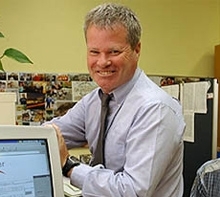
Position: Founder & Director
Simon Collyer hails from Brightlingsea in Essex, a small town on the coast between Colchester & Clacton. Simon worked very successfully in the leisure marine industry in the UK and in Australia. Later in London Simon worked in the web development and publishing fields, founding a below-the-line sales promotion agency in the early nineties and then later a software company Red Banner in South Africa (2002-06). Here in South Africa, Simon became interested in the Third Sector and starting his own organisation.
-
Christopher Johnson
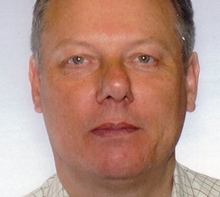
Position: Bookkeeping and Administration
Chris lived in Oxford for twenty years, having been educated at Magdalen College School. Chris sought a career with British Rail and spent twenty years in railway retail management ending with Virgin Trains at Euston Station. Christopher retrained in bookkeeping and accounts in 2000 and now works for Chelmsford Community Transport.
A strong, enthusiastic team player with a meticulous eye for detail, Christopher brings a range of skills to the ABC.
Team
-
Frances Rimmer
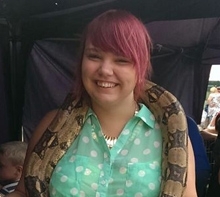
Position: Researcher
When not charming snakes Frances is a Modern History student at the University of Essex, focusing specifically on social history. The lives and experiences of the ordinary person rather than on politics or the military. Outside of her studies, Frances enjoys film and writing. As a keen roller skater who plays roller derby with the Kent Roller Girls, Frances secret wish would be to become a skating instructor and open her own rink, as she has always wanted to help people in some way, and feels it would be great to do so while also sharing her passion with like-minded people.
-
Stuart Meyers
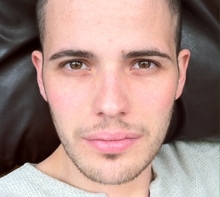
Position: Researcher
Stuart Meyer, is a final year American Studies student at the University of Essex. Stuart focussed his academic life on global justice and the rights of migrants. Additionally Stuart has a passion for writing, both creatively and with the aim of providing accessible information to those who need it most Stuart has made a great contribution to our library of Advice Guides demonstrating his versatility by writing intelligently on a wide range of topics.
-
Louis Jones
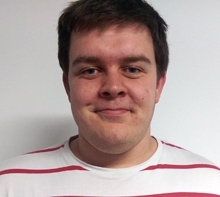
Position: Film Maker
Louis is a 19 year old TV and film student studying at Colchester Institute. Along with hand-picked fellow students, Louis made the ‘Membership’ video that can be seen on the ABC website. Louis volunteers at, Hospital Radio Colchester, as a football commentator. A true fan of the ‘Great Game’ Louis insights have been sought after on occasions by key local media, the Colchester Daily Gazette & even BBC Essex.
-
Marcus Pierpont

Position: Film Director
Talented student film maker, Marcus Pierpoint, directed the ABC 'Membership' film which can be seen on the organizations website. Marcus has recently graduated from a BTEC course, studying Creative Media Production at Colchester Institute and he claims a true passion for films and filmmaking. Marcus also enjoys radio work and volunteers at the local hospital radio station, producing and presenting his own show. Marcus is enrolled at the University of Greenwich, and dreams of a career in the media industry.
-
Shane Mitchell

Position: Film Maker
Shane Mitchell, is another Colchester Institute Film and TV student that aspirers to be a Director of Photography in the future. Shane was the camera operator for the ABC Membership video, fun to make says Shane but it is also work he is very proud of. Shane loves all things ‘film’ and he makes videos even in his spare time.
-
Joe Corlett

Position: Film Director
Ex-student script writer/director, Joe Corlett, directed the ABC's corporate video (About Us) which is now viewable on the main website. Joe graduated from the Colchester Institute with a BTEC diploma in the field of media. Joe is passionate towards film making and hopes to continue making more that are constructed form his own material. On the side he's loves being out jogging in all terrains and when not out side he's writing scripts for future projects. Joe is now out in the world ready to start his life goal of working in the Media industry.
-
Jon Taylor

Position: Film Maker
Jonathan Taylor has been working in the media sector for 3 years and for our filming projects he worked as the production manager. John worked on graphical elements of our film, About Us for example, rendering images and making them look good on screen.
Jon is also experienced in animation and he made the logo and animation sequences in the ABC corporate videos.
Part of Jon’s brief was to also organise the administration side of filming, known collectively to admin experts the world over as ‘the paperwork’.
-
Thomas Hearn

Position: Film Maker
Thomas Hearn, has been involved in media, for about three years. Tom likes to work a lot at a computer, particularly the editing suite. For the ABC project, Tom worked on the edit itself; created and pieced together both the footage and the music, Tom created the visual elements of the ABC ‘About Us’ video and put most of the visual effects on the video.
I think we can agree that along with the rest of our youthful student team; Tom has done a very fine job indeed.
-
Max Gillard
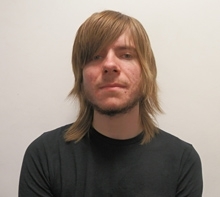
Position: Film Maker
The last of our film team Max Gillard has recently finished college studying Creative Media Level 3 and Max hopes to continue the course on to University to someday gain a job in the media industry.
We wish Max the best of luck.
-
Harry
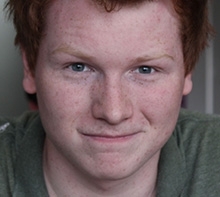
Position: Film Maker
My name is Harry Genge and I am an aspiring film maker. I have skills in the majority of film orientated jobs, though I am most interested in the creative roles such: Directing, Director of Photography and Writing. In my spare time I make short films, write, read, draw/paint and take the dog out for long walks.
-
Ned
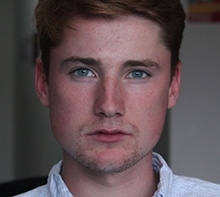
Position: Producers
My name is Ned Woodcraft and I’m an aspiring Producer. As well as completing a diploma in media production I have also had a number of jobs in the professional market. I’m also a keen sailor and water sport enthusiast.
-
Brandon
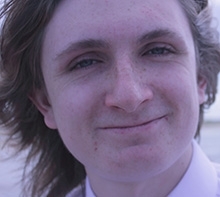
Position: Producer
My name is Brandon and I’m an aspiring producer and actor. I enjoy bringing a production together with planning and preparations to create a great finished product. My hobbies also include street magic and bass playing.
-
Callum
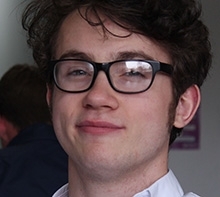
Position: Writer and Director
My name is Callum Olive and I’m an aspiring writer and director. I’m always looking for a new project and love writing new stories and screenplays at home and on the move. My hobbies include playing the piano and street magic.
-
Joanie DeMuro

Joanie joined ABC team in early 2017. She was one of six student volunteers from the University of Essex in that cohort. The student team focused on a range of projects, including creation of Wikipedia page,‘training manual’ and most importantly, researching and adding entries to the website directory of organisations that assist the unwaged, or those on low incomes. “This placement was very helpful - thanks for the opportunity Simon.”
-
Cherry Lam

Cherry Lam has been volunteering for ABC for one month. Although it is a short period of time, she knows a lot more about the running of a charity organisation. Cherry is responsible for adding directories to the organisation website according to categories. Joining this placement helped her improving skills and gaining new experiences. Cherry says is extremely appreciative of the support she has received from ABC which allowed her to improve skills.
Join
FREE
Here


